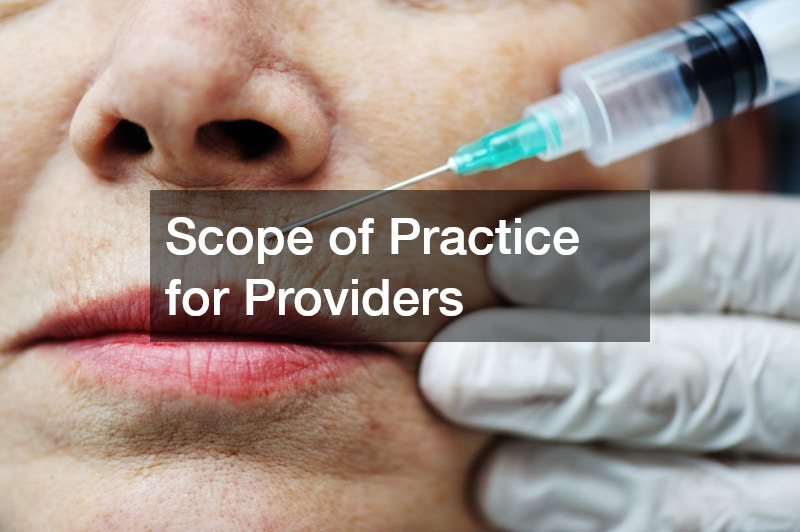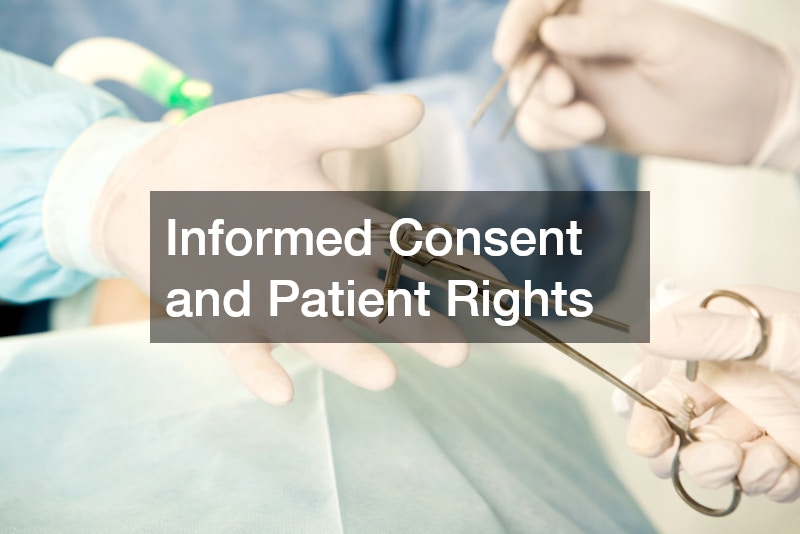In recent years, the medical spa and plastic surgery industry has witnessed significant growth. This sector caters to a variety of aesthetic and medical needs, and understanding the legal aspects of opening such a business entity is crucial, as navigating through regulations requires in-depth legal knowledge and informed decision-making. Below, we delve into the multifaceted legal landscape associated with opening a medical spa and plastic surgery business.

Business Structure and Licensing
The foundational step in opening a plastic surgery and medical spa business is choosing the right business structure, which can range from a sole proprietorship to a corporation. Each structure has specific legal ramifications that influence liability, taxation, and the extent to which personal assets are protected. Engaging in business coaching can help entrepreneurs make informed choices that align with their goals and mitigate potential risks.
Acquiring the necessary licenses is another critical component of establishing a medical spa or plastic surgery practice. These licenses vary depending on the services offered and the state’s regulatory requirements. In addition to general business permits, cosmetic surgery businesses often need additional certifications to perform specific procedures, ensuring compliance with quality and safety standards.
Furthermore, navigating the licensing process is an intricate task that may necessitate legal knowledge and the involvement of business coaching professionals. A thorough understanding of state and federal guidelines is indispensable to avoid legal pitfalls. It’s essential for medical spa and plastic surgery business owners to keep abreast with licensing updates to maintain operational integrity and avoid penalties.
Medical Board and Regulatory Compliance
The healthcare industry, especially segments involving plastic surgery and medical spas, is subject to strict oversight by medical boards. These boards ensure that practitioners adhere to established standards and regulations. Compliance is crucial, as deviations can result in penalties, revocation of licenses, and, in severe cases, legal action.
The role of medical boards also extends to evaluating the qualifications of practitioners offering specialized services like laser treatments and liposuction. They make sure that only certified professionals administer procedures, thereby reducing risks and enhancing patient safety. Regular assessments and continuing education mandates are part of maintaining compliance with these governing bodies.
Additionally, a medical spa and plastic surgery business must comply with regulations related to procedures. Regulatory compliance not only boosts credibility but also fosters trust among clients who expect high standards of care. Organizations must allocate resources to stay informed of regulatory changes through ongoing research and training sessions.
Physician Ownership and Supervision Rules
In many states, laws stipulate that only physicians can own medical practices, which applies to medical spas offering certain procedures. Ensuring compliance with physician ownership rules is vital for legal operation. These regulations are designed to uphold medical integrity and guarantee that businesses are led by qualified professionals.
Supervision rules dictate the level of oversight a physician must provide in settings where non-physician practitioners deliver services. This is particularly relevant for treatments such as botox training, where supervision ensures that procedures meet clinical standards. Clear policies defining these supervisory roles are crucial to prevent legal infractions related to patient care.
Moreover, consulting with medical malpractice attorneys is advisable to navigate complex ownership and supervision laws. These laws can have profound impacts on the operational structure of a medical spa or plastic surgery business. Understanding these requirements can optimize business operations and enhance compliance, eliminating risks associated with improper management.

Scope of Practice for Providers
The scope of practice for providers within medical spas and plastic surgery facilities is tightly regulated to safeguard patient safety. Each practitioner, ranging from plastic surgeons to aesthetic nurses, has predefined roles and responsibilities. This ensures that only qualified personnel perform specific procedures, reducing patient risk and ensuring quality outcomes.
Providers must adhere to the scope of practice defined by their licensing boards, which may dictate the types of procedures they can administer, such as laser treatments and other specialized services. Failure to comply with these regulations can result in disciplinary action, including fines and suspension of practice. Ensuring that staff receive comprehensive training and Botox training certifications helps to solidify compliance and cultivate a respected practice.
The delineation of practice scopes is also crucial for mitigating legal risks associated with malpractice claims. Each team member must operate within their legally defined boundaries and obtain proper permissions for services rendered. This promotes a structured and legally compliant service delivery model, enhancing the trustworthiness of the medical spa and plastic surgery business among clients.
HIPAA and Patient Privacy Regulations
Ensuring the confidentiality and privacy of patient information is a cornerstone of operating any healthcare-related business. Compliance with HIPAA regulations is a legal requirement for medical spas and plastic surgery facilities. Failure to protect patient data can result in severe penalties and loss of trust among consumers.
HIPAA compliance necessitates robust data protection measures, including secure systems for maintaining electronic health records. Adopting reliable medical device inventory management software can help in this regard by providing a secure platform for data exchange. Regular audits and training sessions cultivating legal knowledge regarding these requirements are essential for all staff members involved in handling sensitive patient information.
Furthermore, creating and implementing comprehensive privacy policies that follow HIPAA guidelines is imperative. These policies should be communicated clearly to both staff and patients, ensuring transparency and fostering a relationship of trust. By ensuring stringent adherence to HIPAA regulations, a medical spa and plastic surgery business can not only avoid legal repercussions but also demonstrate its commitment to patient safety and privacy.
Medical Malpractice and Liability Insurance
Medical malpractice and liability concerns are ever-present in the field of medical spas and plastic surgery. Securing adequate insurance is essential for protecting the business against claims related to service errors or procedural complications. Medical malpractice attorneys can offer guidance on choosing policies that align with the specific risks of your practice.
Malpractice insurance provides coverage for legal defense and potential settlements if a client files a claim of medical negligence. It’s, therefore, necessary to assess and select suitable plans that cover the range of services your business will offer. Comprehensive coverage enables businesses to focus on providing high-quality service without the overhanging worry of potential litigation impacting financial stability.
Additionally, liability insurance can offer protection for non-medical claims, which are equally necessary in a setting like a medical spa or plastic surgery office. This type of coverage reassures clients that the medical spa and plastic surgery business is prepared to address any unforeseen incidents promptly and effectively. Hence, securing a tailored insurance package is a crucial step in the establishment and smooth operation of such a business.

Informed Consent and Patient Rights
Informed consent is a pillar of ethical medical practice, requiring providers to adequately inform patients about the procedures they will undergo. This includes discussing the benefits, risks, and alternatives associated with treatments ranging from simple laser treatments to more complex liposuction surgeries. Ensuring clear understanding and consent protects both the patient and the business from legal disputes.
The process of obtaining informed consent is not only a legal requirement but also an opportunity to educate and empower patients. Patients have the right to ask questions and receive thorough answers before proceeding with procedures. Documenting this process meticulously is crucial as it serves as evidence of compliance with patient rights regulations.
Medical spas and plastic surgery businesses benefit from developing standard procedures and consent forms tailored to each service offered. This approach not only streamlines operations but also ensures that patient interactions are consistent and legally sound. By prioritizing informed consent, businesses can bolster their reputation and trustworthiness in the eyes of prospective and current clients.
Advertising and Marketing Restrictions
The competitive nature for a medical spa and plastic surgery business necessitates effective marketing strategies. However, these strategies must comply with specific advertising guidelines that regulate how services are promoted to consumers. Restrictions often exist on the claims that can be made regarding the efficacy and safety of procedures such as liposuction and are designed to protect consumers from misleading information.
Advertising regulatory bodies require transparency and accuracy in all promotional materials. Any exaggerations or unsubstantiated claims in advertisements can lead to legal challenges and damage the business’s credibility. Businesses should conduct regular audits of marketing content to ensure compliance with federal and state advertising standards.
Engaging with marketing professionals who understand these restrictions can prove beneficial for aligning promotional activities with legal expectations. This proactive approach can avert potential legal issues and facilitate the crafting of ethical, appealing, and compliant marketing campaigns that enhance the business’s market position effectively and lawfully.
Compliance with OSHA and Workplace Safety
The health and safety of both employees and clients in a medical spa or plastic surgery setting are governed by Occupational Safety and Health Administration (OSHA) regulations. These rules pertain to various aspects of workplace safety, ranging from safe handling of medical devices to effective medical hazardous waste disposal. Compliance helps create a safe environment, reducing the risk of workplace injuries and associated legal liabilities for your medical spa and plastic surgery business.
The implementation of OSHA guidelines involves regular risk assessments and proper training for staff on how to operate safely within the facility. This includes safe disposal practices, which are particularly critical in environments where procedures such as laser treatments are performed. Ensuring that your business’s practices are in line with pertaining to workplace safety is essential in avoiding penalties and creating safe working conditions.
Additionally, businesses should establish detailed protocols for emergency situations, and review these protocols regularly to maintain preparedness. Incorporating resources like business coaching can address gaps in safety management strategies. By prioritizing OSHA compliance, medical spas and plastic surgery businesses can protect their reputation and ensure a secure environment for all stakeholders.

Prescription and Controlled Substance Regulations
In any medical practice, including plastic surgery and medical spas, managing prescriptions and controlled substances is governed by strict legal regulations. These rules are in place to prevent misuse and ensure that all dispensing activities are transparent and anchored in legitimate medical need. Procedures may involve medication management following operations like liposuction, where controlling discomfort is necessary.
The correct handling and documentation of controlled substances are essential to avoid legal infractions. Implementing reliable medical device inventory management software can facilitate accurate tracking and control over medicinal supplies. Businesses need to enforce strict compliance with federal and state laws regarding prescriptions to avoid severe penalties ranging from fines to criminal charges.
Furthermore, continuous education for staff members about regulations related to prescriptions helps maintain legal compliance. This approach minimizes the risk of cross-legal consequences, aimed at safeguarding both the patient and medical spa and plastic surgery business. Proactive management and adherence to prescription regulations are crucial components in the effective operation of a medical spa and plastic surgery business.
Financial and Billing Compliance
Sound financial practices are imperative in the medical spa and plastic surgery industry, where billing can be complex due to diverse services. Businesses must ensure compliance with financial regulations, reducing the risk of audit-related repercussions and fines. These directives govern everything from pricing transparency to the billing of insurance companies and direct client payments.
Billing compliance encompasses the accurate recording and reporting of all financial transactions, ensuring that billing practices adhere to both legal and ethical standards. This includes issuing clear invoices for services like botox training that detail all costs and ensure that clients are fully informed. Incorporating effective financial tracking systems can support businesses in maintaining compliance and managing cash flow efficiently.
Additionally, regular training aided by business coaching is advisable to keep the financial team up-to-date with evolving billing regulations. An informed team adept at navigating financial compliance challenges is invaluable in safeguarding the business’s financial health. Adhering strictly to these practices helps build consumer trust, an invaluable asset in a client-centric market.
Record-Keeping and Documentation Standards
Comprehensive record-keeping is an integral requirement for medical spas and plastic surgery business operations. Proper documentation of client interactions and procedural details is essential for regulatory compliance and legal protection. Utilizing efficient systems for tracking records, inclusive of custom adhesive products for easy documentation, aids in maintaining organization and access to information when needed.
Accurate documentation not only supports operational continuity but also acts as a crucial defense tool in legal situations. Thorough records of procedures, informed consents, and follow-ups available for review can protect against potential claims and enhance credibility. Ensuring all staff are trained on documentation standards is vital, especially for high-stakes treatments.
Continuous review and updating of records systems help stay aligned with industry best practices and evolving regulatory expectations. Businesses are encouraged to routinely audit their documentation processes to identify and rectify inefficiencies. By doing so, they uphold industry standards, reinforce trust with clients, and ensure the seamless integration of legal compliance in daily operations.
The intricate landscape of legal requirements for opening a medical spa and plastic surgery business demands diligence and informed planning. Understanding the detailed legal aspects discussed, from compliance and patient safety to advertising and operational structuring, is fundamental to achieving long-term success. Legal knowledge is the backbone of managing the complexities associated with such businesses and ensuring alignment with regulatory demands.

